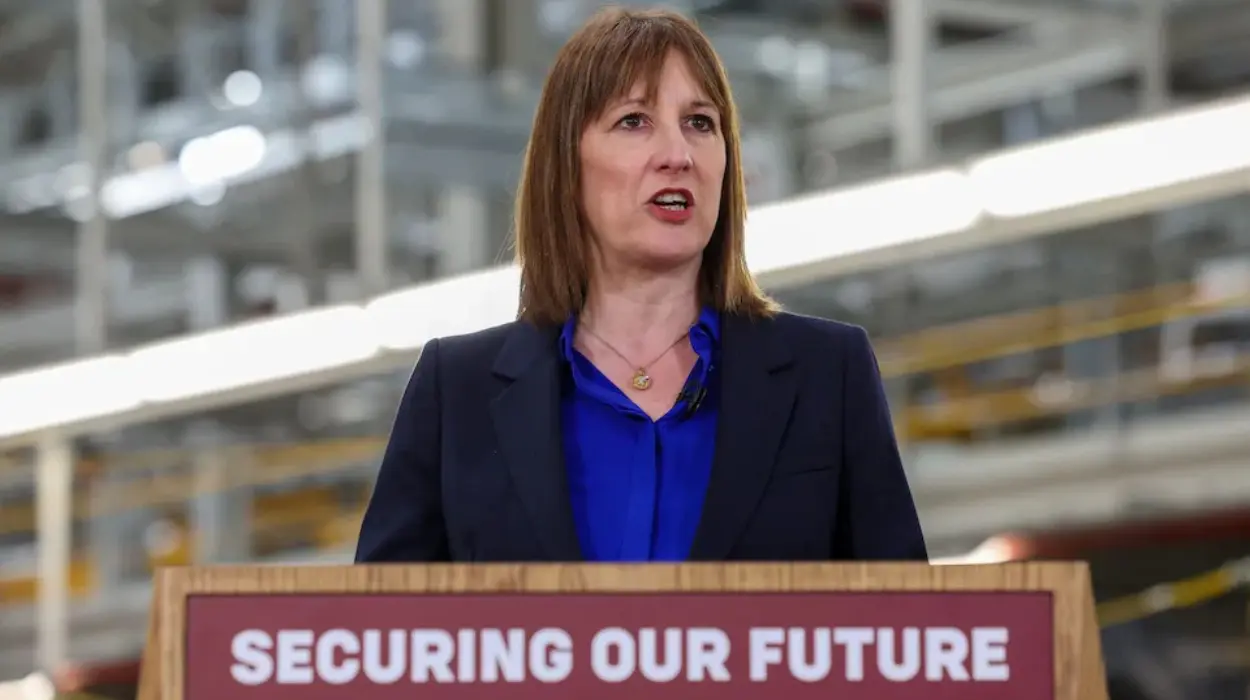UK (Parliament Politics Magazine) – Labour revives “Buy British” campaign to counter Donald Trump’s tariffs, with Keir Starmer proposing procurement rule changes to favour local firms.
As reported by The Telegraph, to counter the impact of Trump’s levies, major UK public projects will be urged to adopt a new “Buy British” initiative.
What is Labour planning to do to boost British firms amid Trump’s tariffs?
Keir Starmer is considering altering procurement guidelines to give British firms an edge in securing government contracts.
New transport infrastructure, offshore wind, and defense projects should be part of the changes, which will be outlined in this year’s industrial strategy and spending review.
Labour’s plan is based on the “Buy, Make, Sell More in Britain” campaign, first launched by Rachel Reeves in 2021 during the opposition years.
Insiders within the government have confirmed the plan was brought back to tackle worries regarding the UK’s manufacturing sector and the effects of Trump’s tariffs on British firms.
At a Jaguar Land Rover plant in Solihull on Monday, Keir Starmer and Rachel Reeves told factory workers, “We have your back,” while the government rushed to evaluate the effects of mass scale market sell-offs.
How is the UK addressing recent market slumps?
The FTSE saw more than a 6% decline on Monday morning, in line with slumps observed in Asia over the weekend.
The S&P 500, a leading gauge of corporate America’s performance, saw wild swings, moving closer to a bear market.
Downing Street insiders said that “pro-growth moments” will follow soon, underscoring the importance of “resilience” for the UK economy.
What does Keir Starmer’s EV reform plan mean for the UK’s green goals?
Last week, Number 10 announced that it would revise the targets for car manufacturers to produce more electric vehicles. The plan introduces greater flexibility and lowers fines as part of Labour’s growth strategy.
Under the new plan, the Labour leader has freed small manufacturers, including those in the supercar sector, from the EV mandate. He also approved the sale of petrol and diesel vans until 2035, a five-year delay from the initial schedule.
In response to whether additional adjustments to net-zero targets were possible, Keir Starmer said he would be “pragmatic” about green rules, adding,
“If there are flexibilities that help, as we’ve done today, then of course we’ll take those steps.”
He argued the UK needs to rebuild “in defiance of a volatile world,” while protecting “British brilliance” from external shocks.
Labour’s “Buy British” plan’s impact on public sector procurement
The Department for Business and Trade is developing a “Buy British” strategy for public sector procurement. This comes after Labour ministers expressed concerns about the number of foreign firms awarded HS2 construction contracts.
According to sources, the announcement of the new initiative is expected to be delayed, as it is tied to Labour’s broader industrial approach, which is anticipated later this year. The strategy will highlight the “priority sectors” for government intervention.
The plan proposes that government departments and quangos will be ordered to give more preference to British companies bidding for contracts.
How will “Buy British” impact major projects?
Under the new approach, British businesses might be given more weight when competing for government contracts for major projects.
The focus for greater involvement from UK companies includes energy projects, defence procurement, and public infrastructure.
However, legal challenges may arise against clauses that prioritize British firms over foreign competitors due to competition concerns.
Mr Starmer warned that the world is “changing” and voters would soon experience a new ‘age of insecurity,’ which he did not solely blame on Mr Trump.
Why is Keir Starmer facing pressure to act on Trump’s tariffs?
Labour leader faces pressure to take action and personally appeal to Trump to reverse his tariff decision, as the two leaders have not engaged since the tariffs were revealed.
After the announcement, the leaders of Japan, Argentina, Israel, and Vietnam reached out to President Trump for talks, as global pressure increased for him to reconsider his stance on the tariffs.
What did Ed Davey say about the Prime Minister’s response to Trump’s tariffs?
Sir Ed Davey, the Liberal Democrat leader, said,
“However unreliable an ally Donald Trump is, of course it is right the Prime Minister negotiates with him. We must end this trade war as soon as we can, or we could lose free trade for a generation. That is why we need an economic coalition of the willing to stand up to Donald Trump.”


